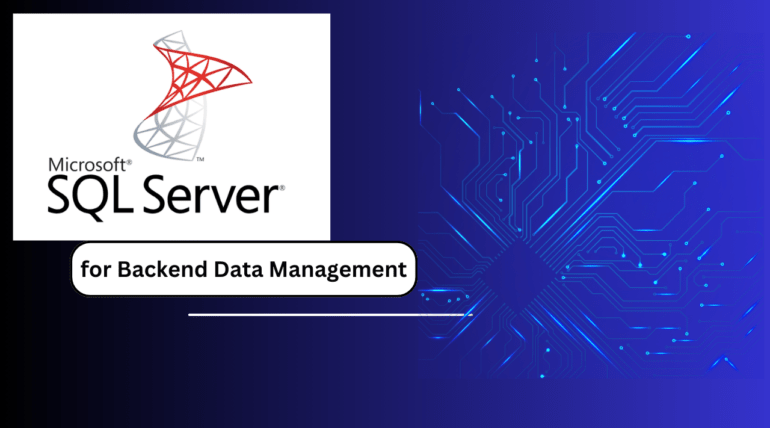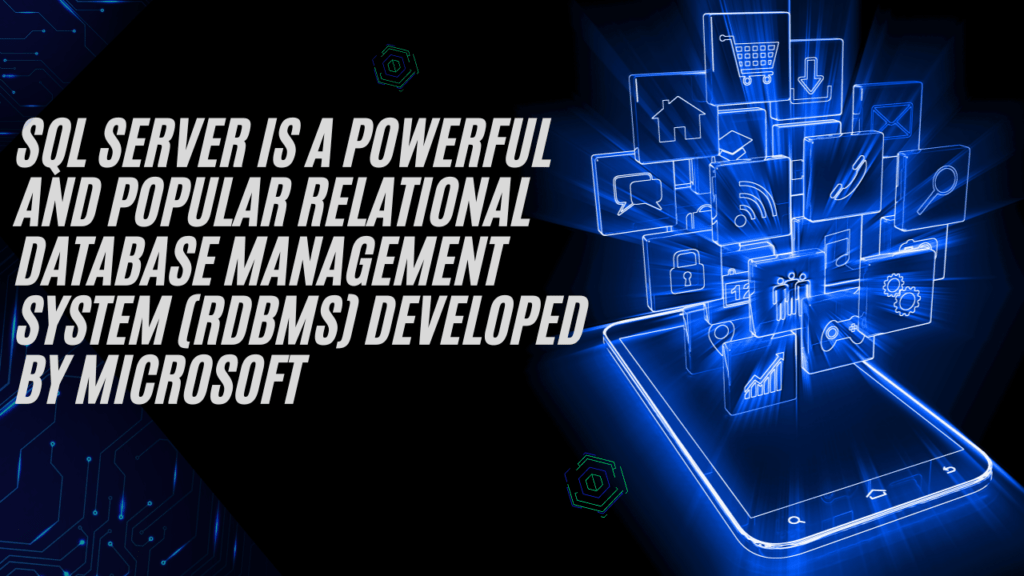
The evolution of SQL Server for backend data management has been a journey of increasing power, flexibility, and security, adapting to ever-growing data demands and technological advancements.

- Significant releases: SQL Server 6.0 and 7.0 marked major advancements, introducing stored procedures, triggers, user-defined functions, and improved performance.
- Focus on scalability and security: SQL Server 2000 and 2005 further enhanced scalability, security, and data integrity features, attracting wider enterprise adoption.
- Cloud integration: SQL Server 2012 introduced Azure integration, paving the way for easier cloud deployments and hybrid scenarios.
- In-memory computing: SQL Server 2016 brought in-memory capabilities for faster data processing, especially beneficial for real-time analytics.
- Containers and microservices: Recent versions like SQL Server 2019 and 2022 emphasize containerization and microservices architecture, aligning with modern development trends.
Overall, SQL Server has evolved from a basic data management tool to a feature-rich platform adaptable to modern backend needs.
SQL Server’s versatility and robust features make it a popular choice for managing and manipulating backend data in diverse applications.

- Enterprise Applications:
- Customer Relationship Management (CRM): Stores customer data, interactions, and history.
- Enterprise Resource Planning (ERP): Manages financial data, inventory, and supply chain operations.
- Web Applications:
- Dynamic websites and web APIs: Stores user data, product information, and other essential data.
- E-commerce platforms: Manages product information, customer orders, and payment details.
- Data Analytics and Reporting:
- Houses data for analysis with tools like Power BI and Tableau.
- Generates reports and insights for various business functions.
- Other Applications:
- Scientific data management
- Medical record systems
- Educational institutions
Importance:

- Reliability and Stability:
- Microsoft’s backing ensures consistent updates, support, and long-term stability.
- Ideal for mission-critical enterprise applications.
- Scalability and Performance:
- Handles large datasets and traffic efficiently.
- Optimizes processing and retrieval for performance-demanding applications.
- Rich Ecosystem:
- A vast library of tools, libraries, and integrations with other Microsoft technologies.
- Streamlines development, management, and integration with existing systems.
- Security and Compliance:
- Built-in security features like authentication, access control, and encryption.
- Compliance certifications for handling sensitive data in regulated industries.
The job market for SQL Server professionals is promising and stable, offering lucrative opportunities for those with the right skills and experience.

- High Demand: Studies show consistent demand for SQL Server professionals, with a 14% increase in job postings between 2020 and 2022 (Burning Glass Technologies).
- Competitive Salaries: Average salaries for SQL Server professionals are generally above the national median, particularly for developers and experienced administrators.
- Diverse Opportunities: Jobs span various industries, including finance, healthcare, IT, e-commerce, and more.
- Continued Demand: The demand for SQL Server skills is expected to remain strong due to:
- Hybrid cloud adoption: Organizations are increasingly moving to hybrid cloud environments, where SQL Server’s cloud integration shines.
- Data growth and analytics: Growing data volumes require skilled professionals to manage and analyze them effectively.
- Evolving Skillset Needs: To thrive in the future, professionals should consider:
- Cloud expertise: Azure skills are increasingly sought-after for cloud deployments and hybrid scenarios.
- Security and compliance: A deep understanding of data security and compliance regulations is crucial.
- Modern development practices: Knowledge of DevOps and automation principles is beneficial for efficient development and management.
Future
Overall, the future of SQL Server for backend data management appears bright. Its continued relevance, evolving skill requirements, and stable job market make it a promising career path for individuals seeking opportunities in the data-driven world.






